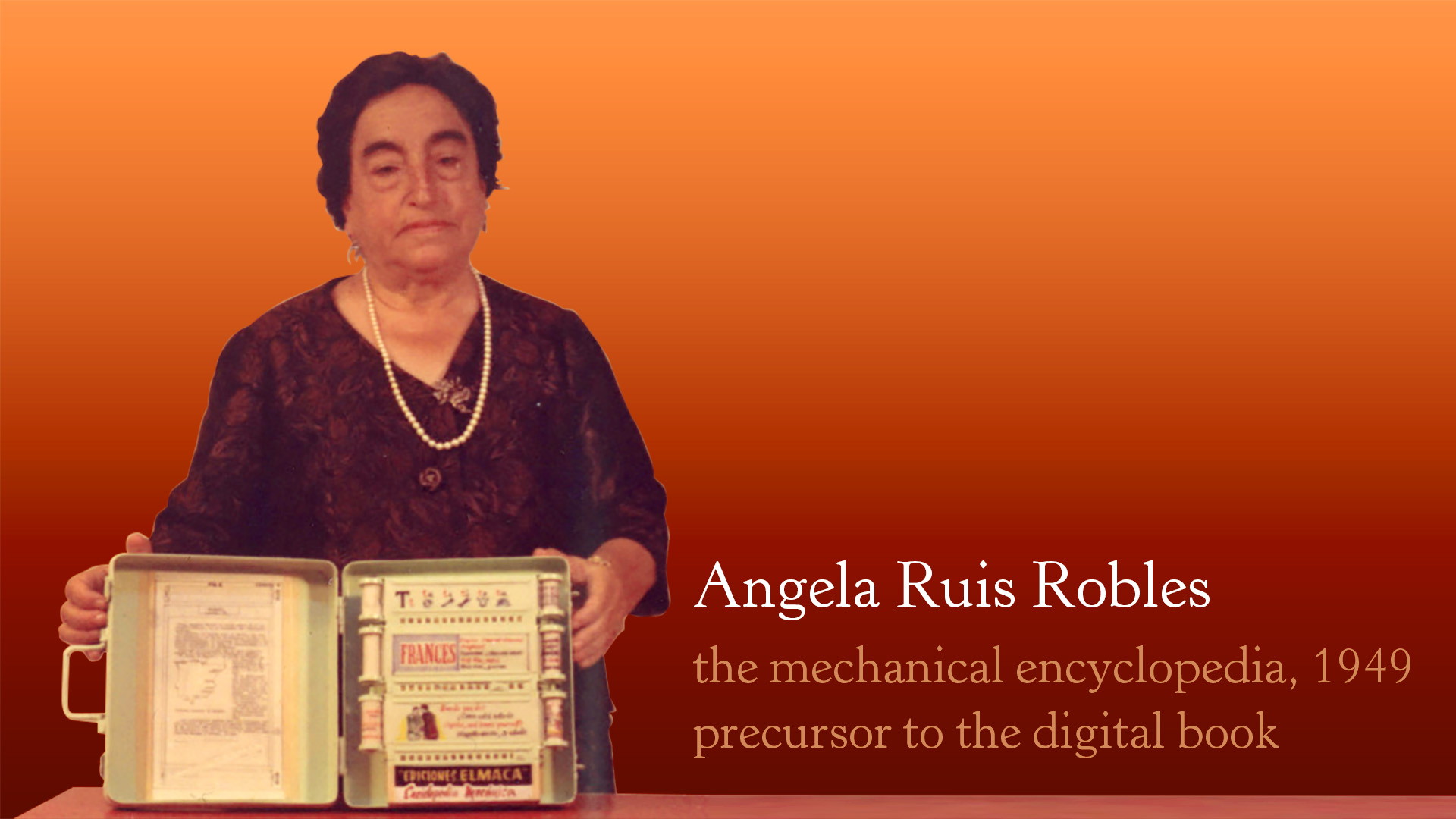The Bookblog / 6 July 2022

The history of eBooks
A battle for commercial dominance, not quality reader experience
Contents
1949
Spanish schoolteacher Angela Ruis Robles patents a “mechanical encyclopedia” to help her students, the precursor to the digital book.
1971
Michael S. Hart creates digital copy of The American Declaration of Independence, and launches non-profit Project Gutenberg to ‘encourage the creation and distribution of electronic books’.
1976
Apple Computer founded.
1987
Michael Joyce creates the world’s first interactive fiction story ‘afternoon’, using hypertext, published on floppy disk.
1990
.html, HyperText Markup Language, is specified by Tim Berners-Lee as the markup language for content on the Internet.
1992
.pdf, Portable Document Format, is developed by Adobe as a file format for replicating print documents in digital form, subsequently adopted by Apple.
1993
Bibliobytes website sells ‘eBooks’ over the Internet.
1994
Amazon founded, starts with book selling.
1996
Project Gutenberg hosts 1,000 free eBooks, in .txt and .html file formats.
Abe Books launched, an online bookstore.
1997
Audible launches MobilePlayer, focuses on audiobooks.
.html updated to HTML3, and later in the same year, HTML4, bringing many new features. As HTML becomes more complex, ‘browser compatibility’ becomes problematic.
1998
First eBook readers on PDAs, etc.
eBooks gain ISBN numbers for commercial identification.
Google founded.
1999
National Institute of Standards and Technology holds world’s first eBook conference.
Several book publishers launch ‘iBook’ and ‘eBook’ divisions.
Microsoft says eBooks are “the future of reading” and predicts 90% of all books sold will be eBooks by 2018.
eBooks are not expected to affect the ‘gift book market’, 40% of total print book market. (They still don’t.)
.oeb, Open eBook file format created.
2000
Stephen King publishes new novella Riding The Bullet in digital-only form.
.mobi eBook file format created by Mobipocket, as a wrapper for HTML.
.lit eBook file format created by Microsoft.
2004
Sony Librie e-reader launched with e-Ink.
.md Markdown file format created by John Gruber, for text-only creation of short articles. Soon becomes standard for blogging, etc.
2005
Amazon acquires Mobipocket, starts working with .mobi file format.
2007
Apple iPhone launched.
Amazon Kindle e-reader and eBook store launched (using proprietary .azw file format, based on .mobi).
Goodreads book review website launched.
.epub file format created, as a flexible single file package for web content, using HTML.
2008
Amazon acquires Abe Books.
Amazon acquires Audible.
.html updated to HTML5, bringing improved semantic markup, cleaner separation between content and styling, and better media support.
2009
Stephen King’s new novella Ur launched exclusively on Amazon Kindle Store.
Barnes & Noble Nook e-reader launched.
2010
Rakuten Kobo e-reader launched.
Google Play Books store launched (accepting wide variety of file formats, including .epub, .pdf, .doc, .html).
Apple Books (iBooks) launched (primarily focused on .epub, .pdf).
Amazon Kindle app for iPhone & Android launched.
2011
Amazon launches Kindle 4 - lightweight, pocket-size & extremely cheap at $79.
.epub v.3.0.1 file format released, to allow more precise book formatting.
2012
B&N partners with Microsoft to mitigate against Amazon domination.
Pottermore exclusively sells Harry Potter eBooks ($1.6m in first 3 days), develops ‘transmedia’ storytelling.
Apple iPad launched, paving the way for tablet devices ideal for casual reading.
Amazon introduces Whispersync, linking Audible audiobooks with Kindle books.
2013
Amazon acquires Goodreads book review website, integrates into Kindle.
Oyster subscription service for books launched in USA.
2014
B&N partners with Samsung to bring Nook software to Galaxy devices.
Amazon launches Kindle Unlimited subscription service.
2015
Google acquires Oyster, integrates into Play Store.
Project Gutenberg hosts 50,000 free eBooks.
2016
Amazon bundles eBook subscription into Amazon Prime.
2017
Amazon reportedly controls 90% of eBook market.
eBook sales stall for first time in 5 years.
Michael Tamblyn, Kobo CEO, comments “For all of us now the fight is around attention and our ability to bring it back to reading.”
2019
.epub v.3.2 file format released, with even looser spec for greater flexibility.
2020
Global pandemic: book sales up, eBook sales proportionally down.
2022
eBooks estimated to account for around 15% of worldwide publishing industry sales, selling around 200 million units, generating around $17bn revenue. (sources: statista.com, publishers.org and others)